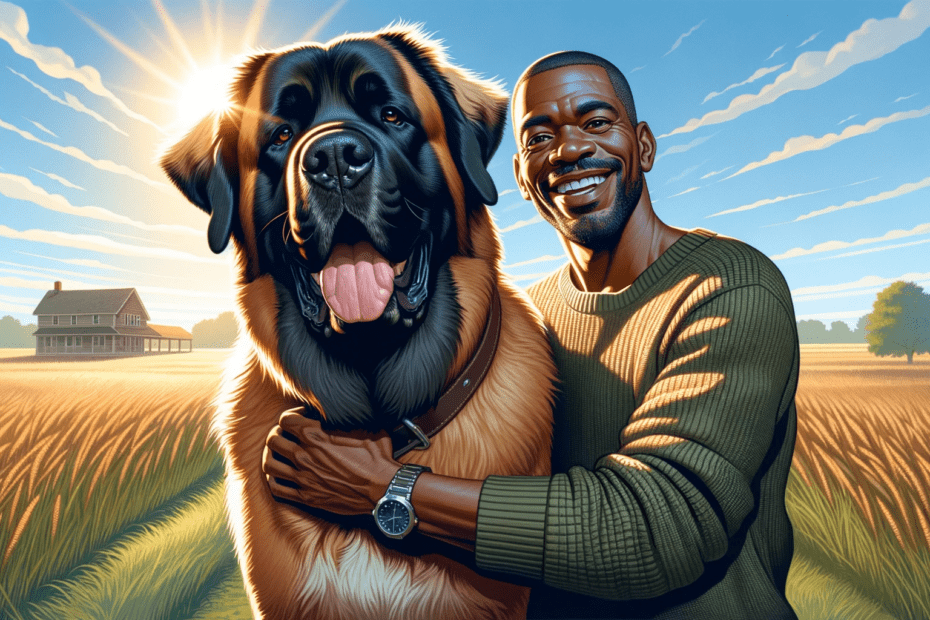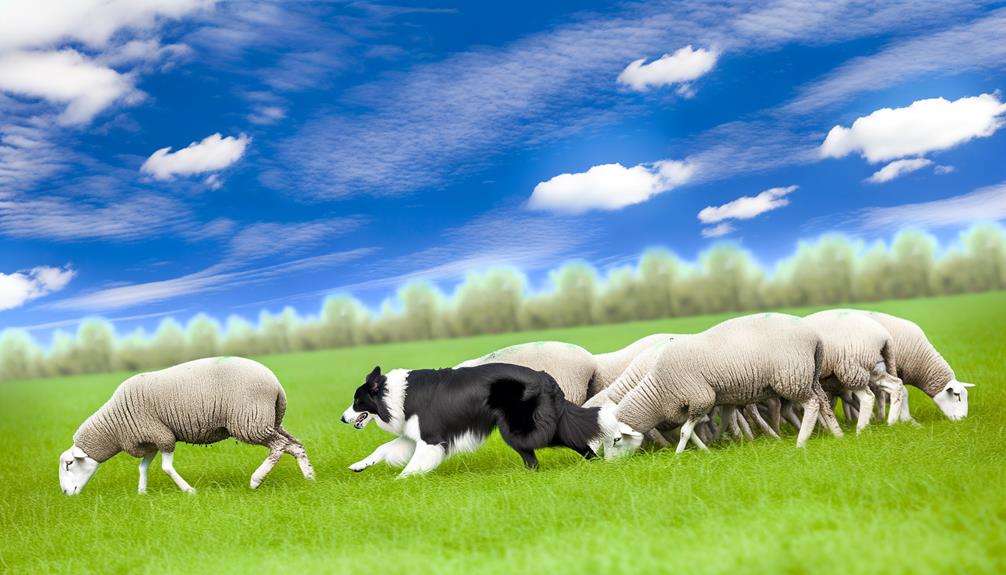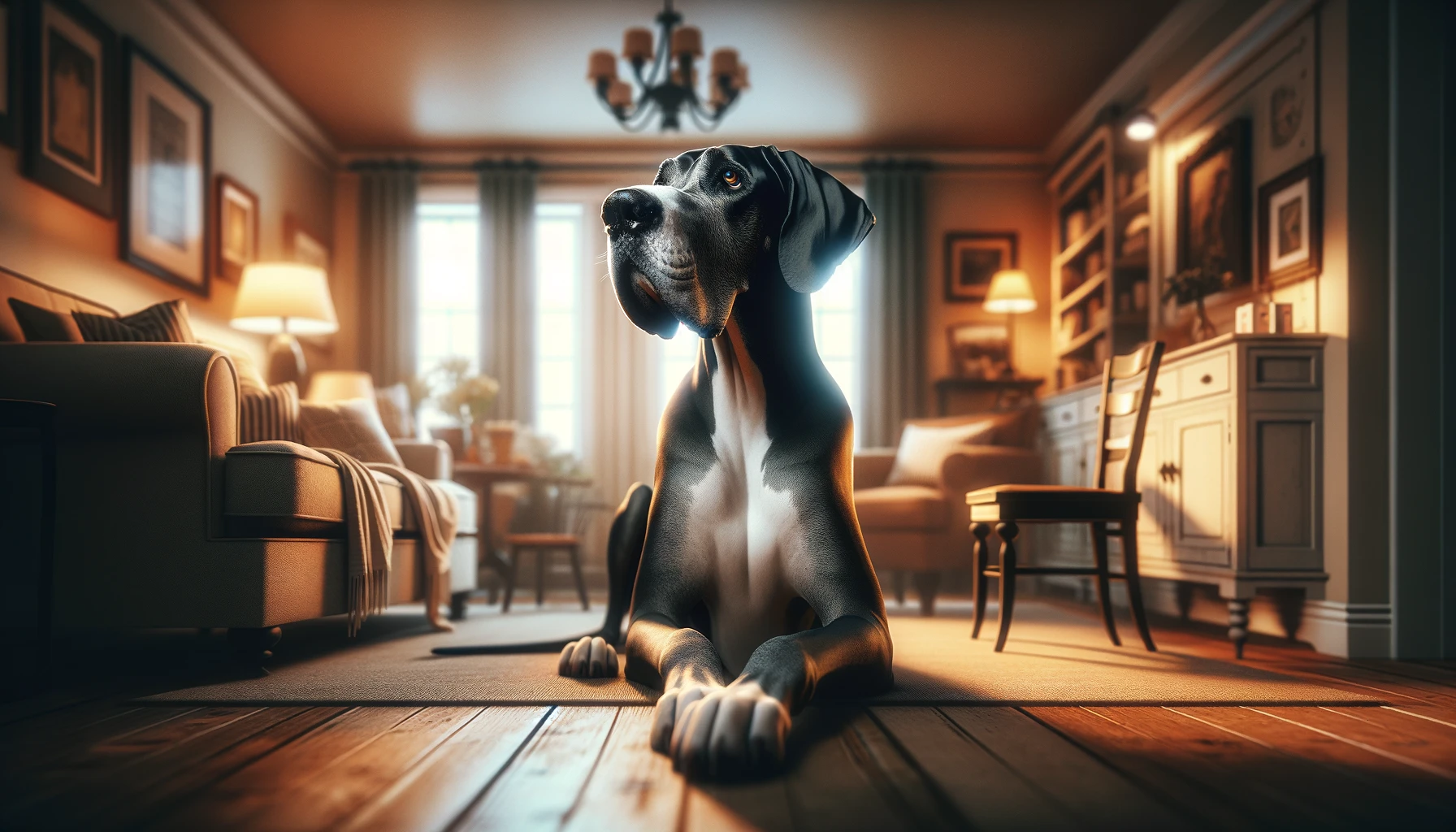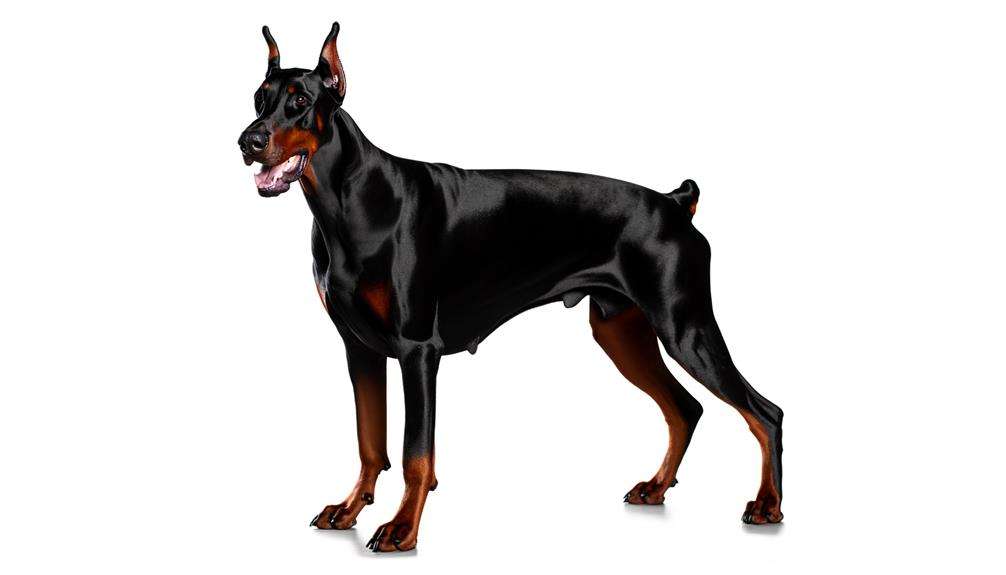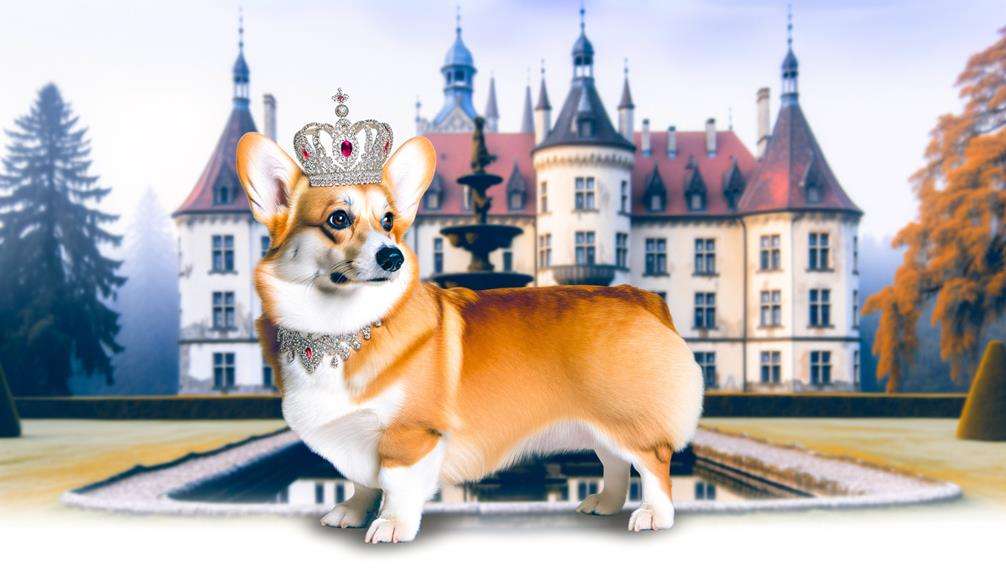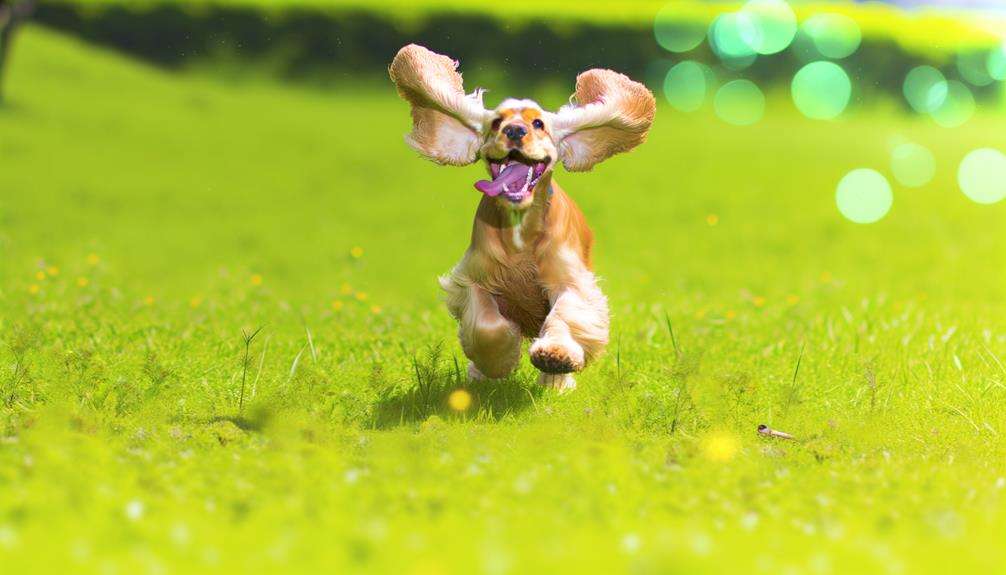Are you a first-time dog owner looking for a big furry companion? Look no further!
We've got you covered with our list of the 8 best large dog breeds. From the playful Labrador Retriever to the loyal German Shepherd, these breeds are perfect for those new to the world of dog ownership.
So, get ready to find your new best friend and discover the joy of owning a big, lovable pup!
Key Takeaways
- Labrador Retrievers and Golden Retrievers are ideal for first-time owners due to their loyal and friendly temperament, trainability, and need for daily physical activity.
- German Shepherds are intelligent and versatile, but require consistent training and early socialization to be friendly towards others. They are best suited for experienced owners.
- Boxers are energetic and protective, requiring regular exercise and mental stimulation. They thrive in active environments and are great for families.
- Bernese Mountain Dogs and Newfoundlands have a calm and gentle temperament, but may experience separation anxiety. They require regular exercise and grooming to prevent obesity and maintain their thick coat.
- Great Danes are known for their gentle and friendly behavior, but need daily exercise to stay healthy. They form strong bonds with their owners.
Labrador Retriever
If you frequently crave a loyal and friendly companion, a Labrador Retriever is the perfect large dog breed for you. Labradors are known for their gentle and affectionate temperament, making them great family pets. They're highly trainable and eager to please, making them ideal for first-time owners who may be new to dog training. With consistent and positive reinforcement, Labradors can quickly learn commands and obedience skills.
In terms of exercise, Labradors are active dogs that require daily physical activity to keep them mentally and physically stimulated. They enjoy activities such as walking, running, swimming, and playing fetch. Regular exercise helps prevent behavioral issues that may arise from pent-up energy.
When it comes to grooming, Labradors have a short, dense coat that's relatively easy to maintain. They do shed moderately, so regular brushing will help keep their coat healthy and minimize shedding. Labradors are also prone to ear infections, so it's important to regularly clean their ears and check for any signs of irritation.
Golden Retriever
One important factor to consider when choosing a large dog breed for first-time owners is the Golden Retriever. Known for their friendly and gentle temperament, Golden Retrievers are excellent companions for families and individuals alike. They're highly intelligent and easily trainable, making them ideal for novice dog owners.
Golden Retrievers are known for their friendly and tolerant behavior, which makes them great with children and other pets. They've a natural instinct to please their owners and are very affectionate. This breed is known for being patient and gentle, making them a popular choice for families.
When it comes to exercise and activity, Golden Retrievers are energetic dogs that require regular physical activity. They enjoy outdoor activities such as long walks, playing fetch, and swimming. Engaging in these activities not only helps keep them physically fit but also mentally stimulated.
It is important to note that Golden Retrievers are prone to weight gain, so regular exercise is essential to maintain their overall health and well-being. Providing them with ample opportunities for exercise will help prevent boredom and destructive behavior.
German Shepherd
The German Shepherd is a versatile and popular large breed dog for first-time owners. Known for their intelligence, loyalty, and protective nature, German Shepherds make excellent companions and family pets. They're highly trainable and excel in various roles, including search and rescue, police work, and service dog duties.
When it comes to temperament and behavior, German Shepherds are typically confident, courageous, and obedient. They're known for their strong work ethic and willingness to please their owners. However, they can be wary of strangers and may exhibit protective behavior towards their family and territory. Proper socialization from an early age is crucial to ensure they're well-adjusted and friendly towards other animals and people.
Training is essential for German Shepherds due to their high intelligence and energy levels. They thrive in environments where they're mentally stimulated and physically active. Consistent and positive reinforcement training methods work best with this breed. They respond well to praise, treats, and structured training sessions. Regular exercise is also important to keep them physically and mentally stimulated.
In terms of socialization needs, German Shepherds require exposure to various environments, sights, sounds, and people from an early age. This helps them develop into confident and well-rounded dogs. Socialization also helps prevent fear-based aggression and anxiety in adulthood.
Boxer
Next, let's talk about the Boxer, another excellent large breed dog for first-time owners. Boxers are known for their friendly and playful temperament, making them great companions for families. Here is why Boxers are a popular choice for first-time owners:
- Energetic and Lively: Boxers have a high energy level and love to play. They'll keep you on your toes with their enthusiasm and zest for life. Their playful nature can brighten up any household, making them a joy to be around.
- Protective and Loyal: Boxers are renowned for their loyalty and protective instincts towards their families. They're naturally suspicious of strangers, making them excellent watchdogs. With a Boxer by your side, you can feel safe and secure.
- Exercise and Activity: Boxers require regular exercise and mental stimulation to keep them happy and healthy. Daily walks, playtime, and engaging activities are essential to meet their exercise needs. They thrive in an active environment and enjoy participating in various sports and games.
Bernese Mountain Dog
When considering the Bernese Mountain Dog as a large breed option for first-time owners, there are several points to keep in mind.
In terms of temperament and behavior, these dogs are known for being friendly, gentle, and good-natured.
They require moderate exercise and activity levels to keep them healthy and happy.
Additionally, their long, thick coat requires regular grooming and maintenance to prevent matting and keep them looking their best.
Temperament and Behavior
If you're a first-time owner looking for a large dog breed with a calm and gentle temperament, consider the Bernese Mountain Dog. This breed is known for its friendly nature and sweet disposition, making it a great choice for families and individuals alike.
When it comes to temperament and behavior, there are a few key points to keep in mind:
- Obedience training: Bernese Mountain Dogs are intelligent and eager to please, making them highly trainable. With consistent and positive reinforcement training, they can easily learn commands and become well-behaved companions.
- Separation anxiety: Due to their loyal and affectionate nature, Bernese Mountain Dogs can be prone to separation anxiety. It's important to gradually introduce them to alone time and provide plenty of mental and physical stimulation to prevent them from becoming anxious when left alone.
Exercise and Activity
To ensure the optimal health and happiness of your Bernese Mountain Dog, it's essential to provide them with regular exercise and activity. Bernese Mountain Dogs are a large breed with significant size and strength requirements. They were originally bred to work on farms, pulling carts and herding livestock, so they've a natural inclination for physical activity.
Daily exercise is crucial to prevent obesity and promote muscle tone in these dogs. A minimum of 30 minutes of moderate to high-intensity exercise is recommended, such as brisk walks, jogging, or playing fetch. Incorporating mental stimulation activities, like puzzle toys or training sessions, can also help keep them mentally sharp.
Grooming and Maintenance
For optimal grooming and maintenance of your Bernese Mountain Dog, it's essential to regularly brush their thick coat to prevent matting and keep it looking its best. Here are three key points to consider when grooming your long-haired breed:
- Brushing: Use a slicker brush or a pin brush to remove loose hair and prevent tangles. Start at the head and work your way down, paying special attention to areas prone to matting, such as behind the ears and under the legs.
- Bathing: Bathe your Bernese Mountain Dog every 2-3 months or as needed. Use a gentle, dog-specific shampoo and conditioner to keep their coat clean and shiny. Be sure to thoroughly rinse out all the shampoo to prevent skin irritation.
- Nail Trimming: Regularly trim your dog's nails to keep them at a comfortable length. Use a good quality nail trimmer designed for dogs, and be careful not to cut too close to the quick, as this can cause bleeding and pain.
Newfoundland
When considering getting a Newfoundland as a first-time owner, it's important to be aware of their size and strength requirements. These gentle giants can weigh up to 150 pounds and need space to roam and exercise.
Additionally, their friendly temperament makes them great family pets, but they do require proper training and socialization to ensure they're well-behaved and obedient.
Size and Strength Requirements
With their massive size and impressive strength, you'll need to be prepared for the size and strength requirements of owning a Newfoundland. These gentle giants can weigh up to 150 pounds and stand over two feet tall at the shoulder. Their muscular build and thick double coat make them well-suited for cold weather.
To keep your Newfoundland healthy and happy, they require regular exercise and activity. Here are some important size and strength requirements you should consider:
- Space: Due to their large size, Newfoundlands need plenty of space to roam and stretch their legs. A spacious backyard or access to a nearby park is essential.
- Daily walks: These dogs benefit from daily walks to maintain their physical and mental well-being. A long walk or two shorter walks per day can help them burn off energy.
- Water activities: Newfoundlands are natural swimmers, and they love to spend time in the water. Providing them with opportunities for swimming or other water activities can help keep them active and engaged.
Gentle and Friendly Temperament
To further highlight the suitability of Newfoundland dogs for first-time owners, their gentle and friendly temperament makes them an ideal choice.
Newfoundland dogs are known for being one of the most gentle and friendly dog breeds. They've a calm and patient nature, which makes them great companions for families with children or other pets.
These dogs are incredibly patient, even in stressful situations, making them easy to train and handle. Their friendly nature means that they get along well with strangers and are generally not aggressive towards other animals.
This makes them a perfect choice for those who are looking for a calm and patient large dog that will fit well into a family environment.
Training and Socialization Needs
If you're considering a Newfoundland as your first large dog, you'll need to be prepared for their specific training and socialization needs. Training a Newfoundland requires patience and consistency.
Here are some effective training methods to help you in the process:
- Positive reinforcement: Newfoundland dogs respond well to praise, treats, and rewards. Use these to reinforce desired behaviors and discourage unwanted ones.
- Early socialization: Introduce your Newfoundland puppy to different people, animals, and environments from a young age. This will help them become well-rounded and confident adult dogs.
- Obedience training: Teach your Newfoundland basic commands such as sit, stay, and come. This won't only make them easier to handle but also ensure their safety in different situations.
Great Dane
When considering a large dog breed for your first-time ownership, it's important to note that the Great Dane is an excellent choice. Known for their gentle temperament and friendly behavior, Great Danes are often referred to as 'gentle giants.' Despite their imposing size, they're typically calm and patient, making them well-suited for families and individuals alike. Great Danes are known to be affectionate and loyal companions, often forming strong bonds with their owners.
In terms of exercise and activity, Great Danes are moderate to low energy dogs. While they do require daily exercise to maintain their overall health and prevent obesity, they aren't as demanding in this regard as some other large breeds. A couple of leisurely walks or play sessions in a spacious backyard should suffice. However, it's important to note that Great Danes are prone to joint and bone issues, so activities that are too strenuous or involve jumping should be avoided.
Saint Bernard
When considering a large dog breed for your first-time ownership, you should think about getting a Saint Bernard. These gentle giants are known for their friendly and patient nature, making them a great choice for families.
Here are three reasons why a Saint Bernard might be the perfect addition to your home:
- Drooling and shedding: Saint Bernards are known for their slobbery kisses and abundant shedding. While this may be a drawback for some, many owners find it endearing and a small price to pay for the love and loyalty these dogs provide.
- Cold weather tolerance: With their thick double coats, Saint Bernards are well-suited for colder climates. They were originally bred to work in the Swiss Alps, rescuing stranded travelers, so they're accustomed to snowy conditions. If you live in a colder region, a Saint Bernard can be a great companion for outdoor activities in the winter.
- Gentle temperament: Despite their large size, Saint Bernards are incredibly gentle and patient. They're excellent with children and other pets, making them a wonderful choice for families. Their calm and loyal nature also makes them great therapy dogs.
Frequently Asked Questions
Are Large Dog Breeds Suitable for First-Time Owners With Limited Experience in Dog Training?
Large dog breeds can be suitable for first-time owners with limited training experience. However, it's important to consider factors such as living in an apartment and the grooming requirements that come with owning a large dog.
How Much Exercise Do Large Dog Breeds Like Labrador Retrievers and Golden Retrievers Require?
Labrador and golden retrievers are active breeds that require regular exercise to stay healthy. To keep them active, engage in activities like daily walks, playtime, and mental stimulation. It's important to meet their exercise needs to ensure their well-being.
Do German Shepherds or Boxers Have Any Specific Health Issues That First-Time Owners Should Be Aware Of?
German shepherds and boxers are popular large dog breeds, but they have specific health issues to watch out for. It's important for first-time owners to be aware of these and prioritize training and socialization for these breeds.
Are Bernese Mountain Dogs, Newfoundlands, and Great Danes Good With Children and Other Pets?
Bernese Mountain Dogs, Newfoundlands, and Great Danes are generally good with children and other pets. However, it's important to note that all large dog breeds require specialized training and socialization to ensure a positive and safe environment.
What Are the Average Lifespans of Saint Bernards and Great Danes, and How Does It Compare to Other Large Dog Breeds?
The average lifespans of Saint Bernards and Great Danes vary, but they generally live around 8-10 years. Compared to other large dog breeds, this is relatively short. Factors like genetics and care can affect lifespan. Common health issues in large breeds include joint problems and bloat. To care for large dogs, provide regular exercise, grooming, and socialization. Training can be challenging, so patience and consistency are key. Choose a breed that fits your lifestyle and be prepared for their exercise and socialization needs.
Conclusion
In conclusion, when it comes to choosing a large dog breed for first-time owners, there are several excellent options to consider.
The Labrador Retriever, Golden Retriever, German Shepherd, Boxer, Bernese Mountain Dog, Newfoundland, Great Dane, and Saint Bernard all make great choices due to their friendly nature, trainability, and adaptability.
These breeds offer companionship, loyalty, and make wonderful additions to any family.
With proper care, training, and love, any of these breeds can thrive in a first-time owner's home.
